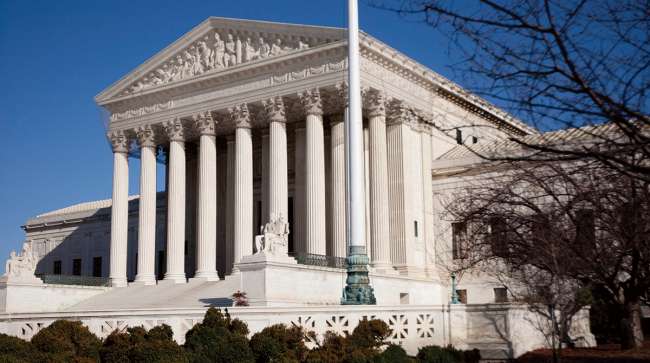Senior Reporter
Fuel Producers, ATA Seek Supreme Court Review of Oregon Low-Carbon Fuel Program

American Fuel & Petrochemical Manufacturers and American Trucking Associations have asked the U.S. Supreme Court to reject an appeals court ruling that upheld the state of Oregon’s program to reduce the carbon intensity of fuel by 10% by 2025.
In their petition for a hearing with the high court, the trade organizations said the state’s fuel program was designed to benefit the local transportation fuel industry at the expense of out-of-state competitors.
The lawsuit, filed in 2015, alleged that the fuel program regulates activity that occurs wholly outside Oregon, extending the state’s regulatory reach beyond its borders in violation of the “federal structure of the United States Constitution.”
Oregon’s governor has said that the state’s fuel plan is meant to help the state’s biofuel producers, feedstock growers and the burgeoning electric vehicle industry, and also to compel developers of propane, natural gas and other alternative fuels to invest in the state. No oil refiners currently operate in Oregon and, by recent estimates, the state sent more than $6 billion out of state to import gas and diesel while homegrown, low-carbon fuel producers remain “locked out of a promising market,” state officials have said.
“The governor sought to spark this homegrown industry that can capture a portion of the billions of dollars that Oregonians send out of the state every year to purchase diesel and gasoline, and keep those dollars circulating” in the state, the trade organizations noted in their Jan. 7 petition.
Supreme Court, Oregon by on Scribd
The Oregon clean fuels program, modeled on the California Low Carbon Fuel Standard, was authorized by the state’s legislature in 2015. It requires a 10% reduction in average carbon intensity for diesel and gas from 2015 levels by 2025.
The program requires an entity who has ownership title to a transportation fuel from locations outside of Oregon at the time it is brought into the state to register with the state.
Regulated parties also must keep records for each transaction of transportation fuel imported, sold or supplied for use in Oregon. They also must submit quarterly progress reports and annual compliance reports using the state’s Department of Environmental Quality.
The program also requires fuel providers to reduce the average carbon intensity of the transportation fuels they import or produce in Oregon to meet the annual “clean fuel standard” or to purchase credits from competing producers.
The appeals court said the requirement was designed “to promote the use and development of alternative fuels, because reliance solely on petroleum-based fuels would make targeted emissions reductions unattainable.”
A three-judge panel of the 9th Circuit Court of Appeals sided with the state of Oregon in its September 2018 opinion, rejecting the plaintiff’s claim that the state’s program assigning carbon intensity credits and deficits “effectuated a discriminatory effect.”
The panel also rejected the claim that the Oregon program violates the Commerce Clause and principles of interstate federalism by attempting to control commerce occurring outside the boundaries of the state. The Commerce Clause grants Congress the power to regulate commerce with foreign nations and among the U.S. states.
The trade associations claim the Supreme Court should review the appeals court ruling because that decision implicates “an established circuit conflict concerning the ability of a state to regulate economic conduct occurring outside of its borders under the United States Constitution and conflicts with the Supreme Court’s precedents.”
“The decision further implicates a conflict among the circuit courts and with decisions of this court regarding the standards that apply to assess a state regulation that discriminates against interstate and foreign commerce,” the petition for review said.




